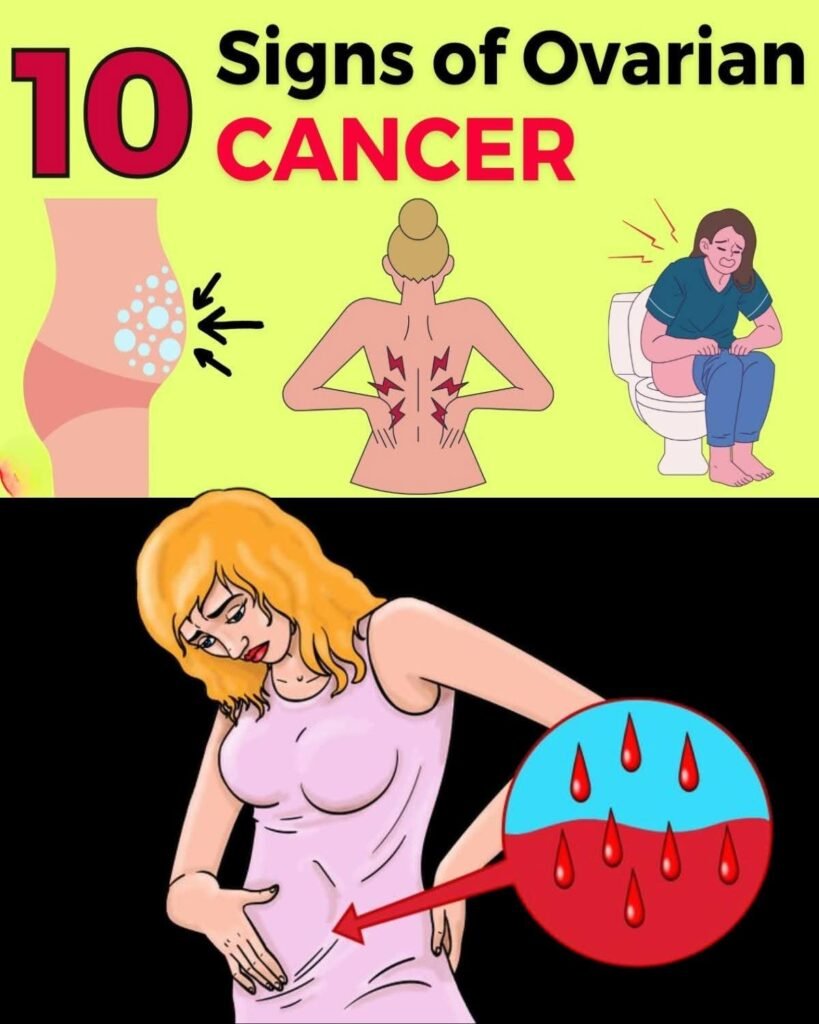You know your body better than anyone else. You notice when something feels off — maybe a change in your skin, a lump, unusual fatigue, or a pain that lingers longer than it should. But here’s the truth most women don’t like to admit: we often brush these signs aside. We tell ourselves it’s stress, hormones, or just getting older.
The problem? Many cancers start quietly — with subtle, almost invisible signs — and by the time they’re noticed, they’ve already gained ground.
So today, we’re shining a light on 14 visible warning signs that women frequently ignore. They don’t always mean cancer — far from it — but knowing them could empower you to catch something serious early, when it’s most treatable.
Let’s begin where most of us least expect it.
1. Unexplained Weight Loss
If you’ve dropped more than 10 pounds in a month without changing your diet or activity, it’s time to pay attention.
Many women celebrate unexpected weight loss — but it can be an early signal of cancers like pancreatic, stomach, or lung cancer. When cancer cells grow, they can interfere with metabolism and cause your body to burn energy differently.
If you can’t explain the change, don’t guess — check.
2. Persistent Fatigue That Doesn’t Go Away
Tiredness is part of life, but cancer-related fatigue feels different. It lingers, no matter how much you rest or sleep.
Imagine waking up exhausted, even after a full night’s sleep — your limbs heavy, your focus gone. That’s the kind of fatigue often reported by women with early blood-related cancers like leukemia or lymphoma.
When your body feels drained beyond reason, it’s not just “busy life.” It’s a message.
3. Changes in the Skin or New Moles
Skin changes are among the most visible — yet most ignored — signs. A new mole, a change in color, shape, or texture, or a sore that doesn’t heal could point to skin cancer or melanoma.
Look for:
- Moles that are asymmetric
- Uneven borders or color
- Growth larger than a pencil eraser
The rule of thumb: if something on your skin changes or bleeds without reason, let a dermatologist check it.
4. Unusual Bloating or Abdominal Swelling
We’ve all had bloating after a heavy meal or during a cycle. But constant or painful bloating lasting more than two weeks — especially if accompanied by changes in appetite or pelvic pressure — could be linked to ovarian or gastrointestinal cancers.
Linda, 52, thought her bloating was hormonal. After months of ignoring it, she learned it was early-stage ovarian cancer. Catching it later might have changed her story.
When your belly tells you something feels “off,” trust it.
5. Breast Changes Beyond Lumps
Most women know to check for lumps — but breast cancer can appear in many other ways.
Watch for:
- Redness, dimpling, or thickening of the skin
- A nipple turning inward
- Unusual discharge
Even without a lump, these changes can be warning signs. And remember: not all lumps are cancer, but all deserve a doctor’s attention.
6. Abnormal Bleeding
Any bleeding outside your normal cycle — after menopause, between periods, or from the digestive or urinary tract — should never be ignored.
Endometrial, cervical, or colon cancers sometimes announce themselves through small amounts of unexpected blood.
It’s easy to rationalize: “Maybe it’s stress, maybe it’s diet.” But bleeding that breaks your body’s usual rhythm is your body asking for help.
7. Changes in Bowel or Bladder Habits
When your daily routines shift noticeably, your body may be signaling distress.
Pay attention if you experience:
- Blood in stool or urine
- Ongoing constipation or diarrhea
- Frequent or painful urination
These could be linked to colon, bladder, or ovarian cancer.
You might feel embarrassed to talk about it — but silence never saved anyone. Early conversation can.
8. Persistent Cough or Hoarseness
A cough that lingers more than three weeks — especially if you don’t have a cold — deserves a closer look.
It could be a sign of lung, throat, or thyroid cancer, especially if it’s accompanied by:
- Shortness of breath
- Chest pain
- Changes in voice or swallowing
Don’t dismiss it as “just allergies.” Your lungs might be asking for attention.
9. Sores That Don’t Heal
Whether on your lips, gums, or skin, sores that take too long to heal can point to something deeper.
Cancers disrupt the body’s healing process. A sore that lingers beyond two weeks, especially one that bleeds or grows, may signal oral or skin cancer.
If you smoke or drink regularly, your mouth deserves extra care.
10. Difficulty Swallowing or Persistent Indigestion
Do you feel like food “sticks” in your throat, or that swallowing takes effort? Persistent indigestion or reflux that doesn’t respond to treatment can sometimes indicate esophageal or stomach cancer.
Your body shouldn’t make you dread mealtime.
11. Pain That Doesn’t Make Sense
Chronic pain that has no clear cause — especially in the back, pelvis, or bones — can sometimes signal deeper issues like bone or ovarian cancer.
Pain is your body’s alarm. Don’t mute it with painkillers alone — understand why it’s ringing.
12. Swollen Lymph Nodes
You might feel small, firm lumps under your jaw, armpit, or neck. Most of the time, it’s a simple infection. But when swelling persists for weeks without tenderness, it could be linked to lymphoma or other cancers.
Your lymph nodes act like guards. If they’re on alert, find out why.
13. Unexplained Fever or Night Sweats
Frequent low-grade fevers or soaking night sweats can be signs your immune system is fighting something serious.
In some cases, blood cancers like leukemia or lymphoma reveal themselves through these subtle but persistent symptoms.
If you’re waking up drenched or running fevers without infection, that’s your cue.
14. Changes in the Mouth or Tongue
White patches, thickened areas, or small sores inside your mouth that won’t heal can sometimes be early signs of oral cancer — especially for women who smoke or drink.
Your mouth is one of your body’s most sensitive indicators. Check it like you check your skin.
A Quick Look: When to Take Action
| Symptom | Duration to Watch | Possible Concern |
|---|---|---|
| Unexplained weight loss | 1 month | Digestive or endocrine cancers |
| Persistent fatigue | 2 weeks | Blood-related cancers |
| Abnormal bleeding | Immediate | Reproductive or colon cancers |
| Constant bloating | 2+ weeks | Ovarian or abdominal cancers |
| Changes in skin/moles | Any time | Skin cancer or melanoma |
The Stories Behind the Statistics
Cynthia, 59, ignored her hoarseness for months, blaming it on dry weather. A simple check revealed early-stage thyroid cancer — easily treatable because she caught it in time.
Maria, 47, noticed a patch of skin darkening on her breast but delayed a checkup. When she finally went in, it turned out to be inflammatory breast cancer. Her regret? “I thought it was nothing.”
Their stories remind us: early doesn’t just mean better — it often means survival.
What You Can Do Today
A Gentle Reminder
Cancer doesn’t always start loud. It whispers — through fatigue, changes, discomfort, and quiet shifts in your body.
Your job isn’t to panic. It’s to listen.
Most of these signs will turn out to be nothing serious. But if one small appointment today could spare you years of treatment later, isn’t that worth it?
So, the next time your body sends a message — through a new ache, a change in your skin, or a feeling you can’t quite name — promise yourself one thing: you’ll listen.
Because awareness isn’t fear. It’s power.
This article is for informational purposes only and does not replace professional medical advice. Always consult your healthcare provider for personalized guidance.



